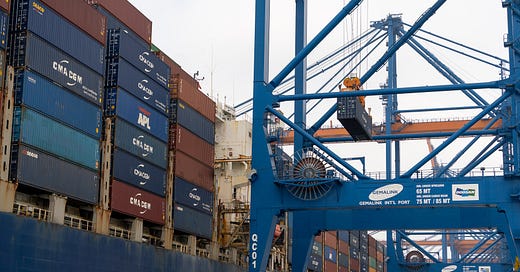Good morning! Welcome to the latest edition of the Vietnam Weekly exclusively for paying subscribers, written by Ho Chi Minh City-based reporter Mike Tatarski. The newsletter is entirely supported by readers like you.
Readers of the free version will see a preview of today’s article. To access it and all weekly subscriber-only features, upgrade your subscription below. Group subscriptions are also available at a 30% discount per person.
On to the news.
Last Thursday, U.S. Senator Marco Rubio introduced a bill called the ‘Stopping Adversarial Tariff Evasion Act.’
The legislation aims to end so-called ‘country hopping’ in which “Chinese manufacturers have exploited a loophole in U.S. trade law by shifting manufacturing facilities to third countries with favorable U.S. trade terms,” to quote the press release from Senator Rubio’s office.
The release specifically calls out Vietnam as one of these ‘third countries,’ along with Mexico and Malaysia.
The bill itself does not name Vietnam, instead focusing on the term ‘foreign adversary country’ and a list of seven countries in this category, including China. It states that tariffs “shall apply to any article that is produced, manufactured, or that underwent final assembly by a foreign adversary party or an entity owned, controlled, directed, or operated by a foreign adversary party, as if such article originated in the foreign adversary country.”
In layperson’s terms, a good produced by a company invested in by a foreign adversary…like China.
Stepping away from rancorous American politics and views on China, what could this mean for Vietnam? Much of the reporting on Rubio’s bill and these trade concerns centers on Mexico and the auto industry, especially the 100% duty placed on Chinese EVs - this isn’t relevant to Vietnam.
But the broader political sentiments are, and there’s ample data to give Vietnam’s export-driven economy cause for concern - including the fact that China led the number of new foreign direct investment (FDI) projects in the country through August.




